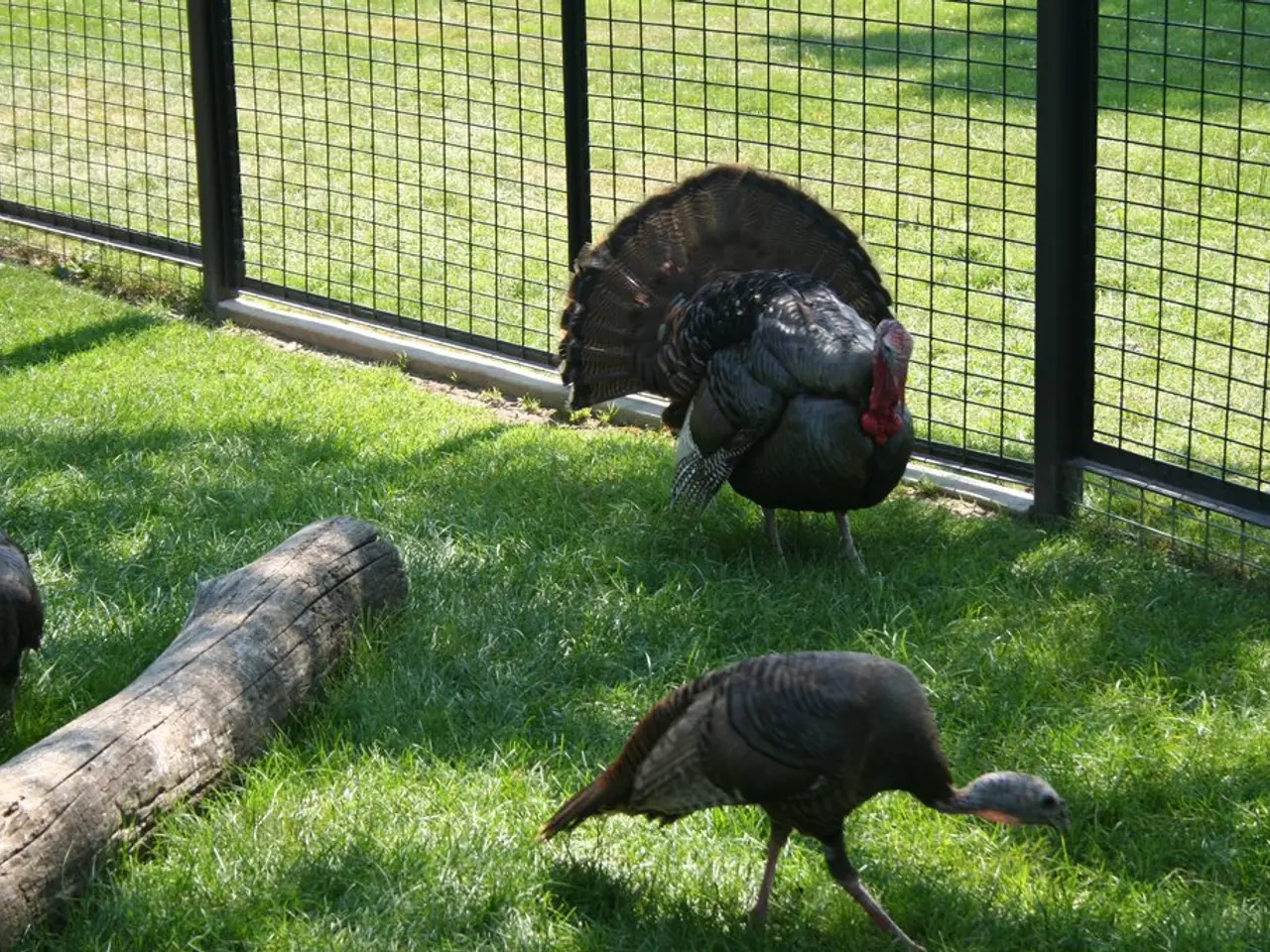Gardeners advised to opt for suitable garden mesh to safeguard local fauna and shield produce
In the world of organic gardening, fine mesh netting has emerged as a popular solution for pest control in vegetable gardens. This versatile tool offers several distinct benefits while also presenting some considerations for gardeners.
The Royal Horticultural Society recommends using fine mesh netting to safeguard crops from a variety of pests, including flying insects like cabbage moths and cucumber beetles, crawling insects such as aphids and squash bugs, and larger wildlife such as birds and rabbits [3][4][5]. This netting, with a mesh size of 0.03 by 0.03 inches, allows essential elements like sunlight, rainwater, and air to pass through, ensuring healthy plant growth and photosynthesis [3][5].
Kiera Faulkner Jekos, a kitchen garden designer and educator based in New York's Hudson Valley, advises using fine mesh netting instead of netting with larger holes to prevent accidental harm to wildlife [6]. Fine mesh netting is more wildlife-friendly as it prevents entanglement and injury to beneficial animals while still protecting crops [1].
For those dealing with critters like chipmunks, squirrels, or rabbits, hardware cloth or welded wire mesh with holes no larger than 1/4 inch (6mm) is recommended [2]. Premade crop cages can also be used for protecting berries from birds, and hardware cloth can be installed under raised beds or added as skirting along the base of fencing.
However, it's essential to be mindful of the potential drawbacks. Fine mesh netting might reduce airflow, leading to overly humid conditions that need monitoring [3]. To avoid this, it's crucial to pull the netting taut and fix it to a frame to improve its effectiveness at protecting crops and prevent wildlife entanglement [7].
Installing and securing fine mesh netting, especially over larger areas or raised beds, can be time-consuming. It also requires regular monitoring to fix tears or gaps to maintain its effectiveness [3][4]. Additionally, netting can make it somewhat inconvenient to tend to plants frequently, such as weeding, harvesting, or applying fertilizers, unless it is designed for easy opening or removal [4].
Despite these considerations, fine mesh garden netting is a highly effective, non-chemical method to protect vegetable gardens from a broad range of pests while supporting healthy plant growth [1][3][4][5]. With proper installation, maintenance, and possibly additional structural support, this versatile tool can help gardeners maintain a thriving, pest-free vegetable garden.
Incorporating fine mesh netting into home-and-garden projects can bolster a healthier lifestyle by safeguarding crops from unwanted pests while promoting organic gardening practices. When designing outdoor spaces, including raised beds, one might consider opting for wildlife-friendly netting to avoid harming beneficial animals while still providing protection.




